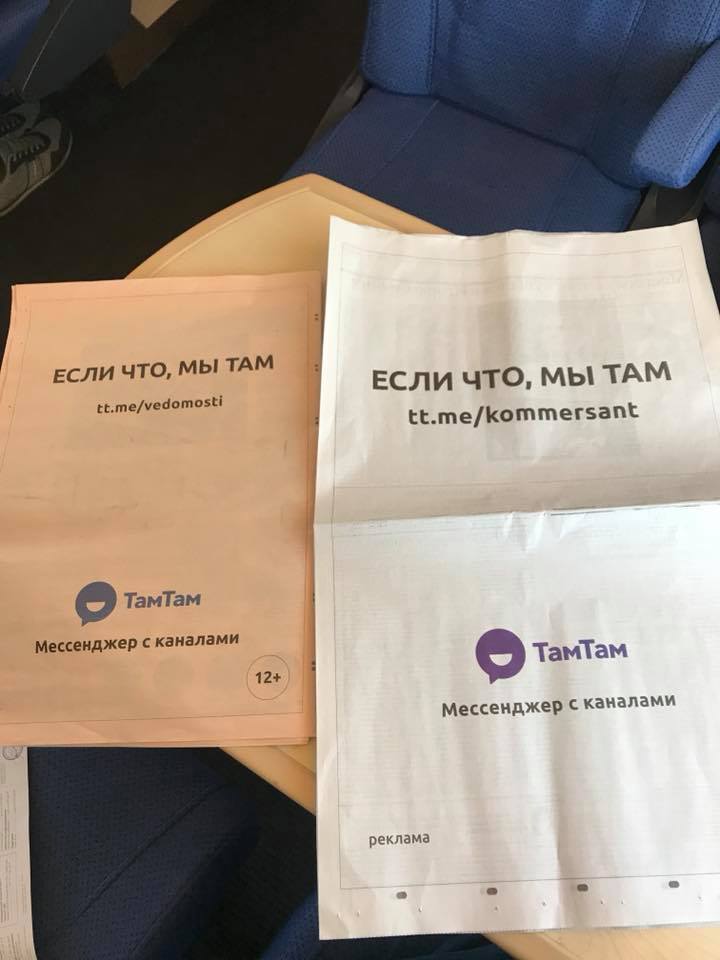The court decided to block Telegram in Russia
 Today the Tagansky court of Moscow allowed to block the Telegram messenger in Russia. The satisfaction of the claim Roskomnadzor reported correspondents ( 1 , 2 ) from the courtroom.
Today the Tagansky court of Moscow allowed to block the Telegram messenger in Russia. The satisfaction of the claim Roskomnadzor reported correspondents ( 1 , 2 ) from the courtroom.The trial was fast. Yesterday at the preparatory meeting, Roskomnadzor asked the court for permission to block Telegram immediately. Then the media estimated that already on April 13 the messenger could be blocked.
The court session today also took place at a fast pace. On consideration of the claim took 18 minutes. It took the court more time to make a decision than to consider the claim. The judge announced the decision to establish in Russia the restriction of access to the Telegram messenger. The court decision on the case 02-1779 / 2018 enters into force immediately.
')
This does not mean that the messenger services will begin to block in Russia now; the decision of the court must pass Roskomnadzor. Roskomnadzor itself promises to block Telegram "in the near future", but refuses to give exact dates.
On March 20, 2018, Roskomnadzor notified Telegram of the need to provide the FSB with keys to decrypt user messages within 15 days. On April 6, the RKN filed a lawsuit about blocking the Telegram messenger due to the failure of Telegram Messenger Limited Liability Partnership to discharge the information distributor. In the register of distributors, Telegram creator Pavel Durov agreed to register in the summer of 2017 only after the head of Roskomnadzor, Alexander Zharov, said that it was only about providing information about the company, and not reading the users' correspondence. After requesting encryption keys, the messenger called the FSB requirements to provide access to private correspondence unconstitutional and technically unenforceable.
Representatives of the messenger was not at the court hearing today, nor at the preparatory meeting yesterday. Telegram was not informed in advance about the appointment of the conversation - lawyers of the company learned about the meeting on April 12 from the court clerk after the calls of journalists. In the Telegram case file, the Telegram is not listed as a respondent, since, according to a court spokesman, the instant messenger threatened with blocking does not act as a defendant, but as an interested person.
Telegram lawyers asked the court to postpone the meeting on blocking the messenger for a "reasonable" period to exercise the rights to protection, but the court refused . The court regarded such a request as “abuse of the right”. The head of Telegram Pavel Durov forbade his lawyers to participate in the judicial process in order “not to legitimize a frank farce with their presence”.
As stated by the representative of Roskomnadzor during the meeting today, Telegram represents a threat to the interests of the Russian Federation and the lives of citizens.
Interestingly, even before a court decision was issued, advertising was activated not only for proxy servers and VPN services to bypass the blocking, but also for instant messengers who consider themselves a substitute. Mail.Ru Group Holding has placed advertisements in the Vedomosti, Kommersant and Delovoy Peterburg newspapers.

The court’s decision will be appealed, said the head of the Agora Information Department, Dmitry Kolbasin: “The lawyers of the international Agora could not participate in this farce today. Now it is important for us to get today's court decision, to study it, and, of course, our lawyers are planning to appeal against it. ” Kolbasin repeats Telegram's position: the requirements of the FSB to provide access to the personal correspondence of messenger users do not comply with the Constitution, and are also technically impracticable.
Telegram is a proprietary cross-platform instant messaging system launched in 2013 by Pavel Durov, the creator of the VKontakte social network. The messenger uses its own encryption protocol MTProto. One of the distinguishing features of the service is the ability to conduct “secret” chats with end-to-end encryption, when the contents of the forwarded messages are available only to the sender and the recipient. There is no technical possibility to read the “secret” chats even for the Telegram itself. But for ordinary chat rooms and channels, the messenger rarely cooperates with law enforcement agencies, preferring to advocate for freedom of speech and privacy.
Telegram is currently unavailable in China and Iran. Residents and residents of these states can bypass the lock, for example, using a VPN. As the head of the Ministry of Communications and Mass Media Alexey Volin admitted , he also resorts to VPN when visiting countries where Internet services are blocked. Nevertheless, he said that blocking Telegram will not lead to any negative consequences for users, because part of the audience will find a replacement, and those who want to stay in Durov's messenger will find a way to get access. Technical means of circumventing blockings even list federal TV channels .
Updated 15:00 MSK : In Russian, Durov promises that Telegram will use some "built-in locking methods that do not require actions from users." At the same time there is no full guarantee of the service without a VPN. In English, the founder of the messenger hinted that Telegram will not put its own revenues above the rights and freedoms of users.
Note : When commenting on this material, please follow the rules of Geektimes. Please refrain from insults and toxic behavior. Postmoderation works in the comments.
Source: https://habr.com/ru/post/358014/
All Articles